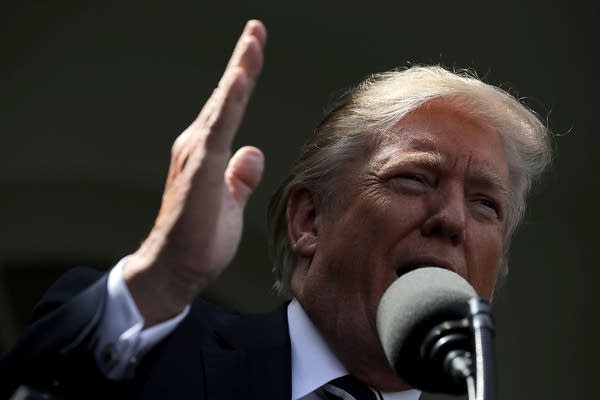Trump uses profanity to disparage Africans

President Donald Trump speaks to reporters in the Rose Garden at the White House October 16, 2017 in Washington, DC.
Chip Somodevilla | Getty Images 2017
Go Deeper.
Create an account or log in to save stories.
Like this?
Thanks for liking this story! We have added it to a list of your favorite stories.


